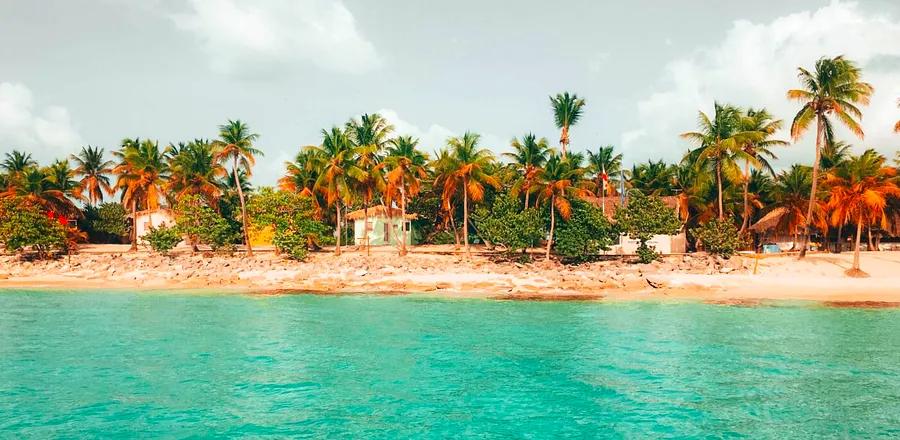11 Essential Tips for Traveling to Benin

Benin may attract fewer tourists compared to its larger West African neighbors, but this doesn’t diminish its appeal for travelers.
This remarkable country boasts a rich history and vibrant culture, featuring tales of ancient kingdoms, stunning beaches, diverse wildlife, and its significance as the birthplace of Vodou. Here’s all you need to know before planning your trip to Benin.
1. Apply for Your Visa in Advance
If you are not a citizen of the ECOWAS (Economic Community of West African States), you will likely need to obtain a visa to visit Benin. Various tourist visa options are available, including a 30-day single entry, a 30-day multiple entry, and a 90-day multiple entry visa. Additional business visas are also offered.
For short visits to Benin, it's advisable to obtain the 30-day multiple entry visa. Fortunately, the application process is quite simple for most travelers, allowing you to apply online through the Benin e-visa site. This website also provides extensive information about the countries eligible for the e-visa and the application steps. If you need further assistance, you can reach out to the nearest Benin embassy in your country. For residents of Europe and the UK, the Embassy of Benin is located in Paris, while in the United States, it can be found in Washington.
When applying for a visa, you'll need to gather the following documents:
A valid passport with at least 6 months of validity; if you're also visiting Togo, ensure your passport is valid for at least one year
At least 2 blank pages in your passport
Recent passport photographs
A yellow fever vaccination certificate
Your flight itinerary
The address of your accommodation for the first night in Benin
2. A yellow fever vaccination certificate is essential
This certificate is mandatory for travelers in various African nations and some regions of Asia. All visitors to Benin must present a yellow fever certificate, and entry will be denied without it. Additionally, proof of this vaccination is needed for your visa application, so make sure to arrange it well ahead of your trip.
 Having small denomination bills is beneficial when haggling for prices at the market © Anton_Ivanov / Shutterstock
Having small denomination bills is beneficial when haggling for prices at the market © Anton_Ivanov / Shutterstock3. Cash reigns supreme in Benin
While card services are available in wealthier regions of Benin, cash is essential for interacting with local guides and getting around. It's wise to carry a good amount of West African CFA francs during your travels. Euros are the easiest currency to exchange; without them, you may find it challenging to convert other currencies, so it's advisable to withdraw cash from an ATM. Visa is generally accepted, but MasterCard may be less widely recognized.
Breaking large notes into smaller ones is crucial when shopping in markets and visiting villages. Having smaller bills enables you to negotiate better with vendors and is also useful for public transport.
4. Benin is a Francophone nation
French serves as the official language in Benin and is universally spoken. English is not as commonly understood. If you're not fluent in French, communication may pose challenges—consider using a translation app on your phone or hiring an English-speaking tour guide to enhance your travel experience.
5. Getting a local SIM card is essential
Upon arrival, it's advisable to acquire a local SIM card for affordable calls and mobile data. MTN is the most reliable network for travelers, providing coverage across Africa, ensuring you have internet access throughout Benin. You'll need to present your passport as identification to buy the SIM card, and your phone must be unlocked.
 Renting a car or hailing a taxi is the most convenient way to navigate Benin © Getty Images
Renting a car or hailing a taxi is the most convenient way to navigate Benin © Getty Images6. A vehicle is the optimal choice for traveling around Benin
The best way to discover Benin is by road. You can choose to rent a car, which is the pricier option, or use taxis. In Benin, there are two types of taxis: bush taxis, which are shared by locals, and standard taxis, which are generally affordable but can be unreliable, leading to longer travel times.
Currently, there are no ride-hailing apps in Benin, and taxi fares can be quite unpredictable. For a more adventurous experience, you might consider 'zems'—motorcycle taxis commonly used for journeys between cities and towns.
7. Traveling during the low season is recommended
Travel during the low season, which runs from February to April and September to November. The ideal conditions in Benin occur from September to November, just before the peak dry season. Temperatures are moderate, making it easier to get around.
Visiting from January to May means you'll experience the peak season, where the extreme heat can be challenging for some travelers.
8. Sample the local cuisine
In addition to popular West African dishes like fufu (made from maize), jollof rice, plantain, peanut soup, and fresh fish, don't miss out on regional specialties such as wagashi, a delightful cheese made by the Fulani people, which is a true local treat.
While at the beach, be sure to try the local coconut juice, served fresh from the trees above. There's nothing more refreshing than sipping coconut juice while unwinding on the sandy shore.
 Vodou is the predominant religion in Benin, and its ceremonies are breathtaking to observe © Cora Unk Photo / Shutterstock
Vodou is the predominant religion in Benin, and its ceremonies are breathtaking to observe © Cora Unk Photo / Shutterstock9. Vodou is a way of life
Vodou ranks among the world's oldest religions and is frequently misunderstood by Western cultures. It is an intricate and profound belief system. The term “Vodou” translates to spirit in the local Fon language, encompassing numerous deities, gods, and a variety of priests, sorcerers, healers, and witches.
As you travel through Benin, you'll encounter references to the Zangbetos (night watchmen) and the Egunguns (spirits of the deceased who communicate with ancestors). You may also see Vodou dolls, which play a genuine role in the faith, used for healing ailments rather than causing harm.
10. Animal sacrifices are commonly included in Vodou rituals
Vodou has a strong animalistic component, with followers believing that animals, objects, and locations possess spiritual importance. As such, you may witness animal sacrifices at the shrines, where priests present offerings to the gods. Typically, these acts aim to bring blessings to the shrine or dispel malevolent spirits.
Many sacrifices have become commercialized, catering to tourists. During the ritual, the animal's throat is cut, and the blood is poured over the shrine while the priest offers a prayer.
Genuine ceremonies are usually spontaneous, requiring an invitation for attendance. While it can be a memorable experience, some travelers might find it distressing if they are not prepared.
11. Maintain an open mind
For those raised with a Western belief system, Vodou might appear to contradict everything familiar. Yet, travel is an opportunity to appreciate diverse cultures and explore different lifestyles. You may encounter stories that perplex you or sights that seem strange. Approach your trip to Benin with an open heart, focusing on the experience rather than passing judgment.
The people of Benin are deeply superstitious, and you may notice intriguing inscriptions or peculiar happenings during ceremonies—embrace these moments as a chance to broaden your perspective. Stay curious and open-minded, and you’ll have a remarkable experience discovering the essence of Benin.

1

2

3

4

5
Evaluation :
5/5